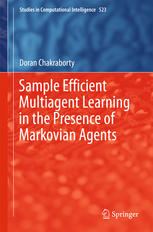

Most ebook files are in PDF format, so you can easily read them using various software such as Foxit Reader or directly on the Google Chrome browser.
Some ebook files are released by publishers in other formats such as .awz, .mobi, .epub, .fb2, etc. You may need to install specific software to read these formats on mobile/PC, such as Calibre.
Please read the tutorial at this link: https://ebookbell.com/faq
We offer FREE conversion to the popular formats you request; however, this may take some time. Therefore, right after payment, please email us, and we will try to provide the service as quickly as possible.
For some exceptional file formats or broken links (if any), please refrain from opening any disputes. Instead, email us first, and we will try to assist within a maximum of 6 hours.
EbookBell Team

4.3
88 reviewsThe problem of Multiagent Learning (or MAL) is concerned with the study of how intelligent entities can learn and adapt in the presence of other such entities that are simultaneously adapting. The problem is often studied in the stylized settings provided by repeated matrix games (a.k.a. normal form games). The goal of this book is to develop MAL algorithms for such a setting that achieve a new set of objectives which have not been previously achieved. In particular this book deals with learning in the presence of a new class of agent behavior that has not been studied or modeled before in a MAL context: Markovian agent behavior. Several new challenges arise when interacting with this particular class of agents. The book takes a series of steps towards building completely autonomous learning algorithms that maximize utility while interacting with such agents. Each algorithm is meticulously specified with a thorough formal treatment that elucidates its key theoretical properties.